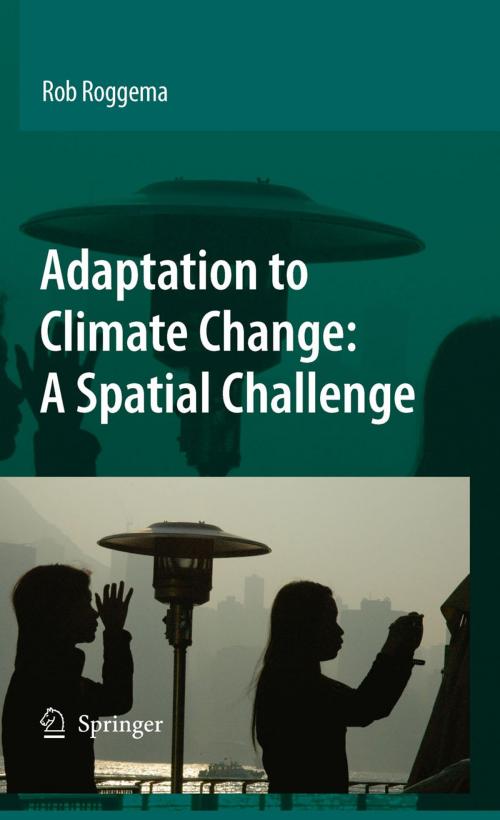Adaptation to Climate Change: A Spatial Challenge
Nonfiction, Science & Nature, Science, Biological Sciences, Environmental Science, Earth Sciences, Nature| Author: | Rob Roggema | ISBN: | 9781402093593 |
| Publisher: | Springer Netherlands | Publication: | March 12, 2010 |
| Imprint: | Springer | Language: | English |
| Author: | Rob Roggema |
| ISBN: | 9781402093593 |
| Publisher: | Springer Netherlands |
| Publication: | March 12, 2010 |
| Imprint: | Springer |
| Language: | English |
As it becomes clear that climate change is not easily within the boundaries of the 1990’s, society needs to be prepared and needs to anticipate future changes due to the uncertain changes in climate. So far, extensive research has been carried out on several issues including the coastal defence or shifting ecozones. However, the role spatial design and planning can play in adapting to climate change has not yet been focused on.
This book illuminates the way adaptation to climate change is tackled in water management, ecology, coastal defence, the urban environment and energy. The question posed is how each sector can anticipate climate change by creating spatial designs and plans.
The main message of this book is that spatial design and planning are a very useful tool in adapting to climate change. It offers an integral view on the issue, it is capable in dealing with uncertainties and it opens the way to creative and anticipative solutions. Dealing with adaptation to climate change requires a shift in mindset; from a technical rational way of thinking towards an integral proactive one. A new era in spatial design and planning looms on the horizon.
As it becomes clear that climate change is not easily within the boundaries of the 1990’s, society needs to be prepared and needs to anticipate future changes due to the uncertain changes in climate. So far, extensive research has been carried out on several issues including the coastal defence or shifting ecozones. However, the role spatial design and planning can play in adapting to climate change has not yet been focused on.
This book illuminates the way adaptation to climate change is tackled in water management, ecology, coastal defence, the urban environment and energy. The question posed is how each sector can anticipate climate change by creating spatial designs and plans.
The main message of this book is that spatial design and planning are a very useful tool in adapting to climate change. It offers an integral view on the issue, it is capable in dealing with uncertainties and it opens the way to creative and anticipative solutions. Dealing with adaptation to climate change requires a shift in mindset; from a technical rational way of thinking towards an integral proactive one. A new era in spatial design and planning looms on the horizon.















